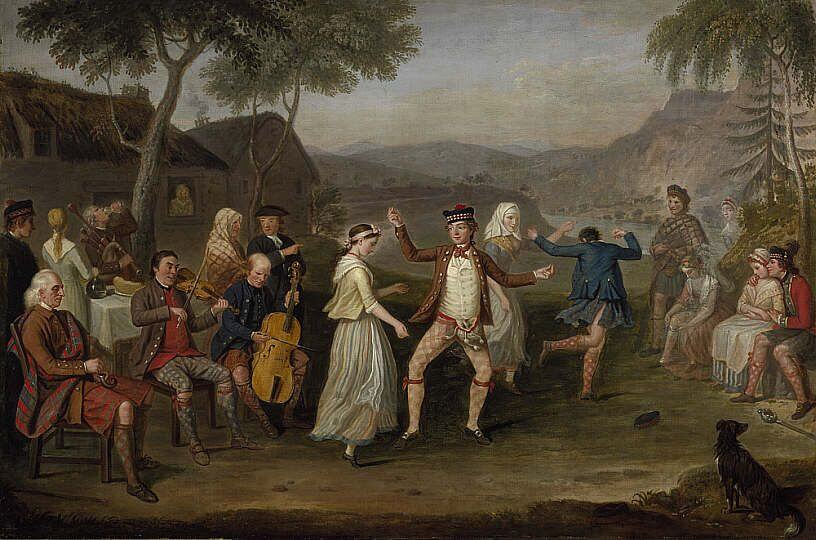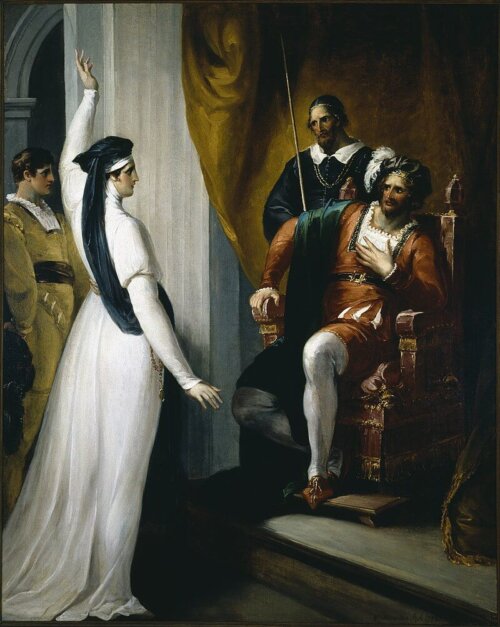Charles Murray: Searching for the Foundation of Society

Charles Murray, in Coming Apart, points out that the American experiment in minimizing the extent of the powers of the federal government, is premised on self-governance involving honesty, industriousness, religiosity, and morality. European visitors in the early nineteenth century often considered Americans uncouth, but they also regarded them as unusually moral, for instance, the rarity of infidelity of spouses, practically de rigueur in France. Once that self-governance diminishes, all is lost. The more base, primitive, and impulsive the population, the more a hardline is required to achieve order. George Washington wrote: “Reason and experience both forbid us to expect that national morality can prevail in exclusion of religious principle.” This is because morality depends philosophically on religious ideas, such as the notion that man is made in the image of God, but also because church-centered communities will have various kinds of social enforcement of moral norms, and, for the least developed among us, it is fear of God that stops pathological behavior.
Industriousness, religiosity, and marriage have not significantly diminished among the elite; the Ivy League graduates who earn the most and live in secluded enclaves only among themselves. They continue to get married and not to have children out of wedlock much as people have always done, though they are likely to tell the rest of us that marriage is an outmoded patriarchal institution. They are highly industrious and work very long hours. Contrary to the stereotype of faith being a benighted working-class thing, faith and church attendance among the working class has drastically diminished, but less so for the upper class. Murray points out that the elite normally set the tone for the rest of us, but the ethos of egalitarianism and an unwillingness to judge, means that they are unwilling to criticize the slothful and promiscuous. Tattoos, normally a sure sign of lower-class membership, have spread upward. 30% of the bottom group of whites are unemployed and do not seek employment. Normally, it is marriage and children that drive men to work hard to provide for their family. Without that impetus, many men choose to do nothing instead; possibly, work a couple of months to qualify for unemployment again, and then live on that.
One of Charles Murray’s central points in Coming Apart is that people from humble origins used to be common aspects of American government. Members of JFK’s cabinet were children of simple shop keepers, and the like. Richard Nixon had no illustrious familial background, a fact that was repeatedly rubbed in his face, of course. Old money had no particular connection with intellectual accomplishment, and Murray gives examples of people who were fantastically rich, but whose basic mode of life and values were not too different from other Americans – gold-plated items and private planes – notwithstanding. The restaurants in Harvard square were similar to those found elsewhere. Basically, what is now considered red state flyover country characteristics were once ubiquitous. The school brainiac and nerd had to do his or her best to fit in with his less intelligent classmates, and would struggle to find someone else with similar interests. Universities like Harvard wanted no more than 10% of their students to be “scholars,” and were in no way repositories of elite intellectuals. Scholars are destined for poverty, and Ivy League schools wanted to be associated with US presidents and the rich and successful. That is how they increase their endowments and also function as sources of aspiration. However, the “knowledge economy” has now made a firmer connection between high IQ and success. Within short order during the 1960s, the admission standards for the Ivy Leagues became much stricter and the students much brighter. What that has meant is that Ivy League students are now members of an intellectual elite with their own specialized tastes and preferences quite different from the majority of Americans. Murray gives an example of parking lots filled with imported cars in elite areas, and American made in lower rent parts of town or areas. Mass TV or mass movies are anathema. The rich are thin and exercise, the poor fat and do not. The rich do not drink, or drink sparingly. There is no need for the local brainiac to associate with those less smart – and they can marry their equivalent in Harvard Law. They go from one rich enclave to another and associate only with their kind. They have no feel for, nor understanding of regular Americans exemplified in Hillary Clinton’s famous description of everyone not a mirror image of her as “the deplorables,” thus demonstrating her complete alienation from pickup truck driving working men in particular, and her ignorance of them. Obama’s stereotype of these others were as Bible clutching and gun toting.
It can be hilarious listening to these elite speculate about why anyone would vote for Trump. Their ignorance was exposed precisely by Trump’s election, which caught them by surprise. In Soviet Union style, Trump voters are considered retrograde counterrevolutionaries to be suppressed at all costs. They are “enemies of the state,” to quote Nancy Pelosi. People from countries like Iran, where school children were taught to chant “Death to America,” or refugees from North Korea, find modern America with its suppression of free speech and attempts to enforce conformity to liberal ideologies frighteningly similar to the countries and cultures they sought to escape.
Notice that honesty and morality are not included as aspects of the modern elite. While they apply such standards and behavior within their class, they have decided that the rest of us must be relentlessly lied to and propagandized – either making things up from whole cloth, or lying by omission, and editing videos to make someone seem like he is saying something he is not, such as the fine people hoax. This kind of consequentialist “moral” behavior is startingly sickening to anyone with an intact conscience. They are convinced that they serve a higher moral truth, in their outright lies. Presumably, these elite have no idea just how evil they have become while rejecting their role in truth discernment and preservation. Instead, colleges and mass media, judges, and bureaucrats, have embraced social justice and activism, leaving absolutely no institution that exhibits actual standards of honesty and morality.
Oppression, and the monied elite, are nothing new. But, an extreme economic divide is now joined to a cultural divide with radically incompatible worldviews. Frankly, it makes mutual succession from the USA seem quite attractive.
Sitting around trying to come up with alternatives to liberal democracy just seems to replicate the repulsive social engineering popular among liberal technocrats, in which the rest of us are pawns manipulated according to the philosopher king’s decisions. These manipulations ignore the incentives that drive human beings and also deny human nature. Human nature puts a severe limit on utopian fantasies. Having mischaracterized the human condition, things go wrong from there. Removing God from the picture, the technocrat sets himself up as a God replacement at the top of the metaphysical hierarchy. Thomas Sowell in Visions of the Anointed comments that professors typically detest religion and the church partly because they are competitors for setting social agendas and for ideological dominance. If a professor were to defer to God and religion, then the influence of priests and the Church would increase and that would be no fun at all.
The United States federal government is supposed to have very limited powers – mostly concerning commerce with foreign nations and between states. Unfortunately, what counts as “regulating commerce” has been expanded beyond recognition. The Tenth Amendment provides that “powers not delegated to the United States by the Constitution, nor prohibited by it to the States, are reserved to the States respectively, or to the people.” This has done little to curtail federal expansionism. Limiting the ability to impose new fancies on an unsuspecting populace is no fun at all for the busybody professor and the activist judge, and they have succeeded very well at enlarging federal oversight and interference.
The alternative to top-down social engineering by a self-appointed elite is tradition. Tradition represents solutions to problems arrived at by trial and error, rather than theory. Tradition relies on a certain level of coercion, for instance, shaming couples into getting married to avoid out of wedlock births, pressuring men to achieve so as to be a main provider, and encouraging women to stay at home and have children so the community can continue to exist. This can be contrasted with modern preferences for a “free for all.” In the past, the Greeks would have one day a year where all bets are off – the population would get drunk outside the city walls and engage in a big orgy – only to return to ordinary life the next day. Or, periodically, debts would be forgiven and a new status quo established. Someone has commented that now, every day is Carnival.
Ironically, the modern “free for all” turns out to be coercive too. Anyone who does not favor libertine debauchery and a mélange of male, female, adult, child, gay, straight, bisexual, etc. is now regarded as retrograde. Women who want to stay home and raise children commonly suffer condemnation. When women joined the workforce the number of workers nearly doubled and depressed demand as the supply went up, so that total family income was not significantly raised. Women’s happiness has not increased. They have become competitors in the workplace with men and when they prove not to be as single-minded and driven as many of their male co-workers their relative lack of success becomes another source of grievance.
Marriage is traditional. Married men are generally more peaceful and harder working than the unmarried. Its main beneficiaries are children. Charles Murray points out that the children of cohabiting biological parents share exactly the same outcomes, on average, as children of single mothers. He states that this is one of the best documented of social science facts that is not open to dispute. Like many empirical facts, the only room for disagreement concerns the theoretical or hypothetical explanation. One possible explanation is that cohabiting couples have premised their relationship on the ease of separation should either party choose to quit the household. No firm and fast public promises have been made to each other, with friends and family bearing witness, and this translates down into their attitude to their offspring. By not getting married, the primary concern is ease of separation rather than concern for the welfare of children.
The other fact that Charles Murray identifies that caught me by surprise was that religious belief without church attendance confers no happiness advantage. Apparently, my philosophical preoccupation with Voltaire’s statement that “Were God not to exist, it would be necessary to invent him,” quoted by Dostoevsky in The Brothers Karamazov, is somewhat misguided. It is not nearly enough to simply believe in God and to recognize Him as the prerequisite for moral values, the admiration of beauty, and for truth and goodness. It is additionally necessary to join with other people in worship of God. Also of significance is that at least half of all charities and social organizations come from churches and community involvement factors high in people’s feeling of happiness. People who are very happily married, with high social trust, who regard their jobs as a vocation, who join community organizations like the Elks, and who both believe in God and attend church regularly, are the happiest members of society, on average. The questionnaire asks people whether they are very happy (31%) pretty happy (59%) not too happy (10%). As someone from New Zealand, where understatement is the norm, as it is in England, then I would expect the “very happy” category to be mostly empty. Perhaps the smiling Dalai Lama would qualify – although he has stated that he smiles also as a matter of policy. But, to the American Charles Murray, he thinks that the “very happy” category is the only one that would demarcate a significant factor. “Very happy – the only answer that means much. You might answer ‘pretty happy’ when what you really mean is ‘I’m doing okay, can’t complain’ or ‘Things could be a lot worse.’ People don’t answer ‘very happy’ so haphazardly. It is likely to be a sign that a person really does assess his life positively.” The unhappiest section is reserved for the never married at 9% with divorced at 17% and widowed at 22%. Only 12% of people dissatisfied with work are very happy. Very satisfied housewives are 57% very happy and 44% of those very satisfied with paid employment are very happy. Those who go to religious services more than weekly are 49% very happy, 41% weekly, while only 23% of those who never attend are very happy.
It seems like dreaming up some new constitution, some new governmental arrangement, is not a remedy, just as having state of the art books, buildings, and equipment helps not at all if students are unmotivated. “What Is To Be Done?” was the old utopian communist catchphrase indicative of top-down central planning. We can speculate about the demise of society, but dreaming up something with which to replace it is simply to continue modern pathologies.
Berdyeav is alarmingly indifferent to modes of government. He seems to think that there can be reasonable monarchies, even communist governments, while “ideal” governments are unworkable if the populace is corrupt. Probably most Americans are still decent people. The Borat movies, which I refuse to watch, make fun of decent, well-meaning Americans trying to accommodate the increasingly bizarre antics of a pretend foreigner from Kazakhstan. Instead of being a beautiful testament to American wholesomeness, the movies are supposed to be understood as an indictment of Americans as gullible rubes. I would like to live with those Americans any day over the sneering Sasha Cohen Baron. But, the Blue State Americans who share his contempt make truly revolting overlords.




